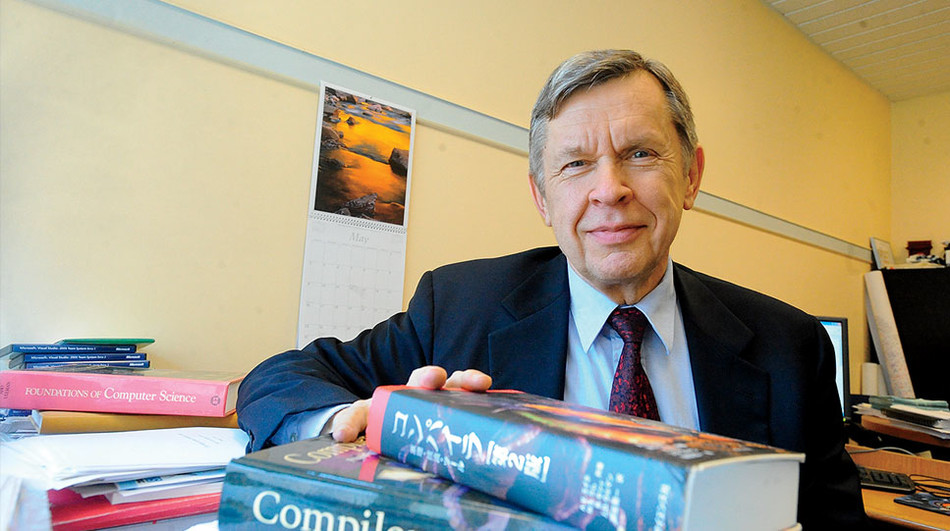Earlier this year, Alfred V. Aho, a longtime Columbia professor of computer science, and Jeffrey D. Ullman ’63SEAS, a Columbia Engineering alum and Stanford computer-science professor, won the A. M. Turing Award, which is often called the Nobel Prize of computing.
Frequent collaborators since the late 1960s, when they worked together at Bell Labs, Aho and Ullman developed many of the theoretical concepts and algorithms underlying modern computer science. Virtually all software programs now used in the world — including those in our smartphones and automobiles and in Internet companies’ giant servers — rely on computing technologies pioneered by Aho and Ullman. The pair also coauthored a number of influential computer-science textbooks that remain widely read by students and software developers today.
Aho and Ullman both earned their PhDs at Princeton before joining Bell Labs in 1967. Ullman (who had earned his bachelor’s degree at Columbia) began a career in academia two years later, ultimately joining the faculty of Stanford, while Aho remained at Bell Labs until coming to Columbia in 1995. Despite working at different institutions, Aho and Ullman continued to conduct research together for several decades, coauthoring nine books and dozens of scientific papers.
Aho, who is the Lawrence Gussman Professor Emeritus of Computer Science at Columbia Engineering, and Ullman, who is the Stanford W. Ascherman Professor Emeritus of Computer Science at Stanford, have both received multiple awards for teaching excellence.
The Turing Award, which is administered by the international Association for Computing Machinery, carries a $1 million prize supported by Google. It is named for the British mathematician and computer scientist Alan M. Turing, who helped the Allies decipher the German Enigma code during World War II.



